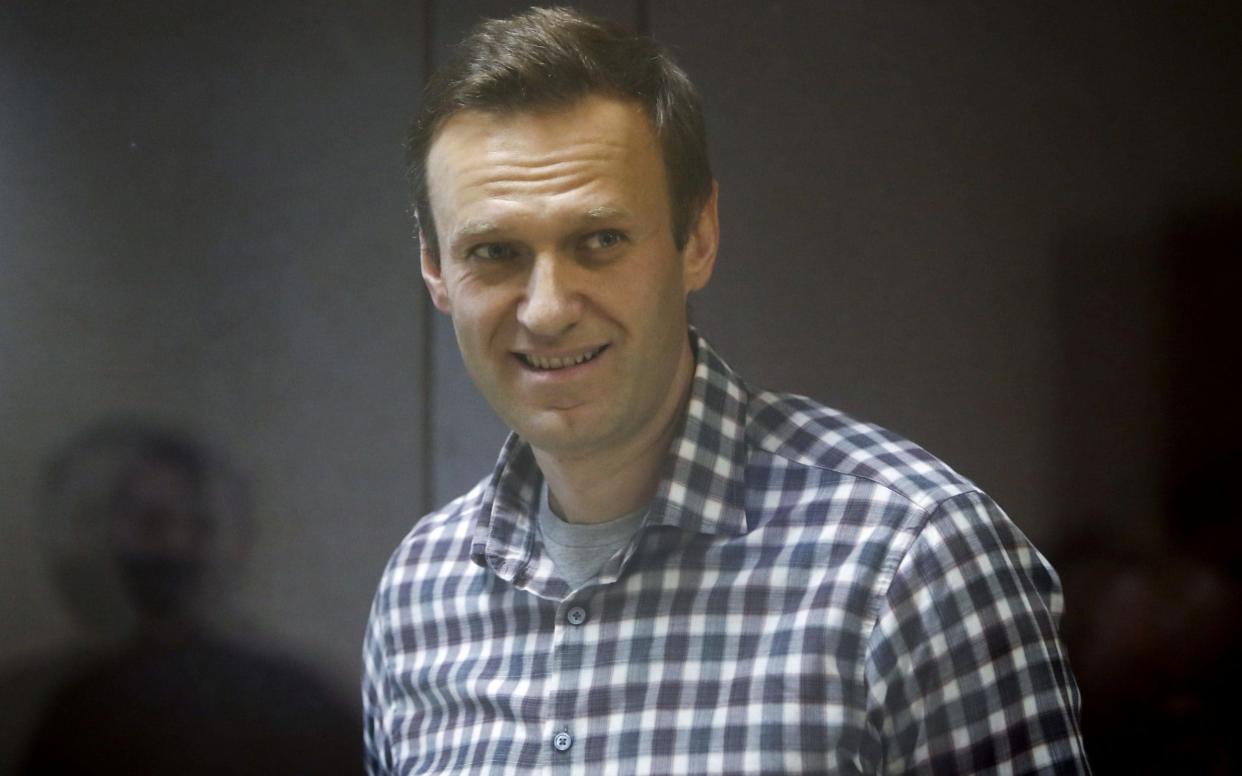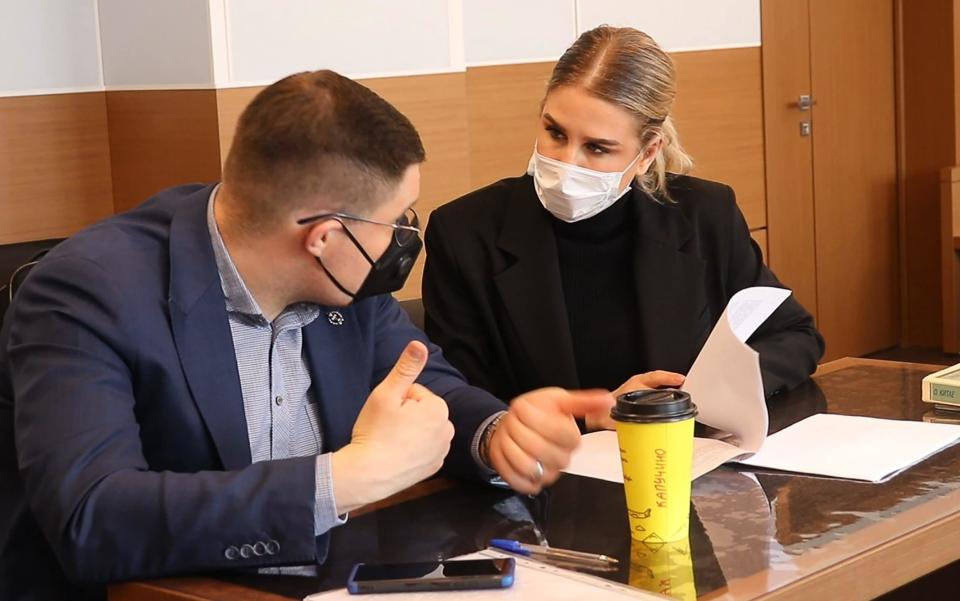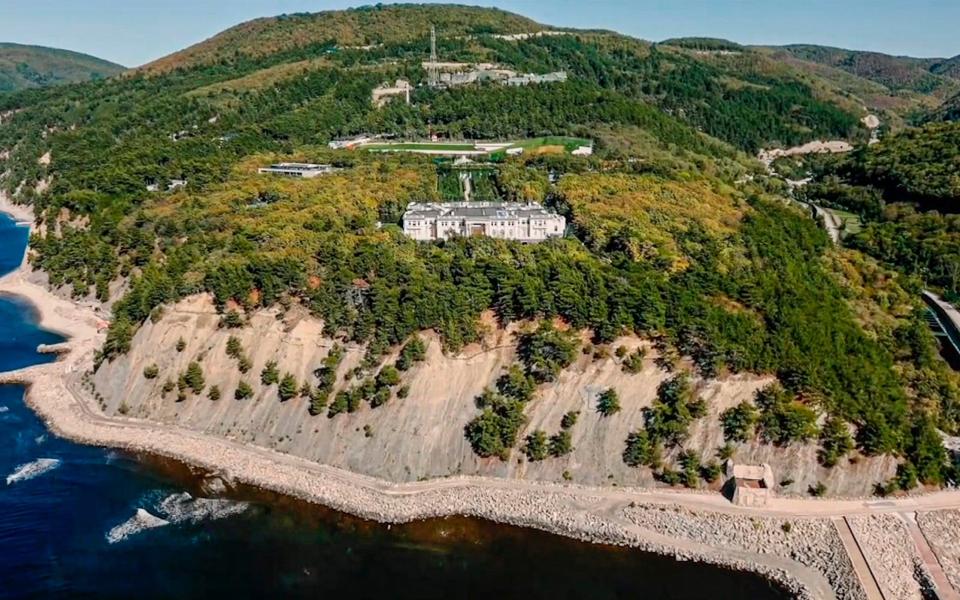Inside Team Navalny's battle to free Putin critic as they threaten to launch nationwide protests

- Oops!Something went wrong.Please try again later.
- Oops!Something went wrong.Please try again later.
- Oops!Something went wrong.Please try again later.
- Oops!Something went wrong.Please try again later.
- Oops!Something went wrong.Please try again later.
It would have been easy to retreat with their leader in prison, his deputies under house arrest and their offices being attacked with smoke grenades.
But allies of Russian opposition figurehead Alexei Navalny – at least, those who remain free – have vowed to continue their campaign to evict Vladimir Putin from the Kremlin, calling for a new round of street protests.
Maria Pevchikh, the head of investigations at Mr Navalny’s Anti-Corruption Foundation, Leonid Volkov, Mr Navalny's political chief of staff, and Ivan Zhdanov, his lawyer, on Tuesday jointly launched an online petition demanding Mr Navalny’s release.
The trio said in a video published online that they would call for nationwide street demonstrations as soon as the petition reached 500,000 signatures.
“We know that this results from two years of our work. Navalny is the biggest problem of Putin’s regime. And anyone who is opposed to the regime should be making the same demand: freedom for Alexei Navalny,” they said.
The threat to bring half a million people on to the streets is designed to get Mr Navalny out of prison. But it is also a key test of the resilience of the small but effective political machine that he has built over the past decade.
Can team Navalny continue to operate as a political force while its charismatic leader is in jail? And can it survive what many believe is a Kremlin decision to finally shut them down for good?
“It is the biggest crackdown we have ever faced, and they are pushing on every front at once," said Ms Pevchikh, an LSE-educated financial investigator. “The Kremlin wants us to shut down. They have an assumption that we are not capable of running our organisation without Alexei. This assumption is wrong."
Since Mr Navalny was arrested on his return to Russia in January, 10 opposition figures linked to Mr Navalny have been placed under house arrest pending investigations into allegations that they broke the law by urging Muscovites to violate coronavirus social distancing measures at an unsanctioned rallies.
They include Lyubov Sobol, an anti-corruption foundation lawyer widely considered the movement’s most electable politician after Mr Navalny himself; Mr Navalny’s brother Oleg; Kira Yarmysh, his press secretary; Oleg Stepanov, the head of the movement’s Moscow office; and Nikolai Lyaskin, a leader of Future Russia, an unregistered political party.

Meanwhile, an unidentified assailant threw a smoke grenade at the organisation’s office in the city of Tver on Tuesday.
Mr Navalny’s organisation is best known abroad for its headline-grabbing investigations into alleged Kremlin corruption, including revelations about a secret “palace” purportedly built for Mr Putin (the Kremlin denies the allegations).
But Mr Volkov believes the current crackdown is more about electoral politics as much as irritation about allegations of corruption.
“We are getting prepared for the Duma elections which will take place in half a year. Frankly, that is the reason why Alexei is in prison,” he told The Telegraph. “And we have one more task, which is to get Alexei released. The only thing that can help is political pressure from the inside.”
The deputies elected to the State Duma, Russia’s elected lower-house, at parliamentary polls in September will be sitting in 2024, when Mr Putin’s current presidential term ends. At that point Mr Putin will have to choose whether to run again, having done away with term limits after a referendum in 2020.
He will need a loyal parliament, and Mr Volkov believes Mr Navalny was sent to prison specifically to protect the ruling United Russia party’s majority.

Mr Volkov is urging a campaign of “smart voting” for any candidates who could beat United Russia, even if that means voting for the country’s moribund Communist Party. It might not bring down the Putin government, but it could erode United Russia's super-majority enough to make 2024 a headache for the authorities.
And the spring protest campaign is a prelude to and part of a much bigger electoral battle.
“We don’t know and I don’t know if Putin knows if it will be a transition of power to himself, or to someone else. But whatever his decision it will be a huge stress for him and the political system,” said Mr Volkov. “This makes them very vulnerable if we can elect several dozen independents.”
It is not the first time authorities have tried to shut down the Navalny operation. Mr Volkov fled Russia in July 2019 after being accused of embezzling money, charges he denies.
He says the organisation survived that crackdown“by a miracle”, and will do again. He also claims that financial donations from sympathetic Russian citizens have surged since Mr Navalny was poisoned last August.
Ms Pevchikh insists she will continue to publish investigations, and says there is little the Kremlin can do to stop her sifting through public records and business registries that make up 95 per cent of her source material.
“My motivation is political: I just want Putin gone,“ she said. “I just want them all to stop robbing my country. And I could never be comfortable with a thought that I was aware of it and I didn’t do anything about it.”

